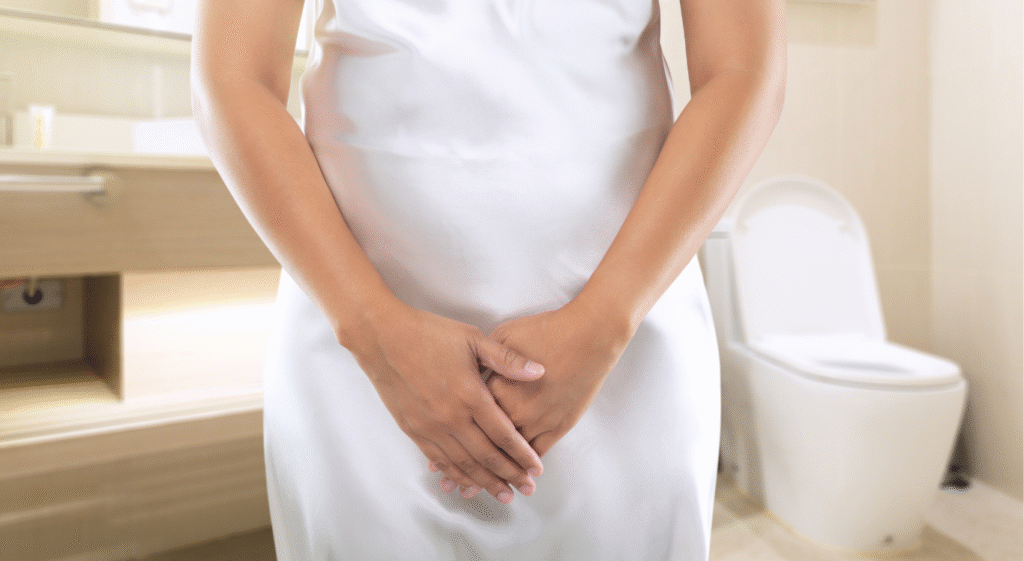Peezing is a term often used to describe the experience of accidentally leaking urine when you sneeze. It might sound funny at first, but for many people, it is a real and sometimes frustrating issue. Peezing is actually a form of stress urinary incontinence. This condition occurs when physical pressure on the bladder—such as sneezing, coughing, laughing, or exercising—causes urine to escape.
The reason this happens is connected to the muscles and tissues that support the bladder and urethra. When these muscles are weak or not functioning as they should, they struggle to keep the urethra closed during sudden pressure changes. A forceful sneeze can quickly increase pressure inside the abdomen and bladder, and if the pelvic floor muscles aren’t strong enough, leakage happens.
Although many people assume peezing only happens to older adults, that is not true. It can occur in young women after childbirth, in men after prostate surgery, and in anyone who has weak pelvic floor muscles. While it is not usually dangerous, peezing can be embarrassing and inconvenient.
Understanding peezing is the first step toward managing it. By knowing why it happens, individuals can explore solutions that strengthen bladder control and improve confidence in daily life.
Common Causes of Peezing
There are several reasons why peezing happens, and they often connect to changes in the body over time. One of the most common causes is pregnancy and childbirth. During these stages, the pelvic floor muscles stretch and may become weaker, making bladder control more difficult. Many women report experiencing peezing after having children, especially when sneezing or laughing.
Another major cause is aging. As people grow older, the bladder muscles lose some of their strength, and the tissues supporting the urethra become less elastic. This natural process increases the risk of leakage during sudden movements like sneezing. Menopause also plays a role because lower estrogen levels can weaken the urinary tract.
In men, prostate surgery can sometimes lead to stress incontinence. Since the prostate helps control urine flow, surgery that affects it may leave the bladder more vulnerable to leakage.
Other factors that may contribute include obesity, which adds pressure on the bladder, and chronic coughing, often linked to smoking or lung conditions. Even high-impact activities like running or jumping can trigger episodes of peezing if the muscles aren’t strong enough.
By identifying these causes, it becomes clear that peezing is not a rare or unusual issue. It is a common problem that has understandable reasons, and knowing them helps reduce the shame or stigma often attached to it.
How to Manage and Reduce Peezing
The good news is that peezing can often be managed and even reduced with lifestyle changes, exercises, and in some cases, medical treatment. One of the most recommended methods is practicing pelvic floor exercises, also known as Kegels. These exercises strengthen the muscles that control urination, making them more effective at keeping the bladder closed during sneezes.
Maintaining a healthy weight is another important step. Extra body weight increases pressure on the bladder, so losing weight can lessen episodes of leakage. Avoiding bladder irritants like caffeine, alcohol, and carbonated drinks can also help since these beverages may make the bladder more sensitive.
For people with more frequent or severe peezing, medical treatments are available. Doctors may suggest physical therapy, medications that improve bladder control, or even surgical options if needed. Special devices like pessaries, which support the bladder and urethra, can also provide relief for women.
Bladder training is another strategy where individuals schedule bathroom visits at regular intervals to reduce unexpected leaks. Combined with exercises, this can significantly improve control.
Managing peezing is about consistency and patience. With the right approach, many people notice improvements and regain confidence in their daily routines without worrying about accidents when they sneeze.
Ways to Manage Peezing
| Method | How It Helps | Who Can Benefit |
|---|---|---|
| Pelvic floor exercises | Strengthens bladder-supporting muscles | Men and women of all ages |
| Weight management | Reduces pressure on the bladder | People with overweight or obesity |
| Avoiding irritants | Keeps bladder calmer and less reactive | Those sensitive to caffeine/alcohol |
| Bladder training | Improves timing and control | People with frequent leaks |
| Medical treatments | Provides additional support when needed | Severe or persistent cases |
Emotional and Social Impact of Peezing
While peezing is a physical condition, it also affects people emotionally and socially. Many feel embarrassed or anxious when they experience urine leakage. The fear of sneezing in public, laughing with friends, or even exercising can lead to avoiding activities that once brought joy. This avoidance can affect confidence, social life, and overall well-being.
For new mothers, peezing may come as a surprise after childbirth, leading to frustration during a time that is already physically and emotionally demanding. Similarly, older adults may feel discouraged when peezing becomes a regular occurrence, thinking it is just a normal part of aging. However, knowing that solutions exist can make a big difference in how people cope with it.
Support from healthcare providers and open conversations help reduce the stigma. Talking about peezing openly allows people to realize they are not alone and encourages them to seek solutions instead of silently enduring the problem. In fact, millions of people worldwide experience stress incontinence, and with the right guidance, most find ways to manage it effectively.
Recognizing the emotional impact of peezing is just as important as addressing the physical side. By combining medical advice with self-care and social support, individuals can feel empowered instead of embarrassed.
FAQs on Peezing
Q1. What does peezing mean?
Peezing refers to accidentally peeing when you sneeze, a type of stress urinary incontinence.
Q2. Is peezing common?
Yes, it is very common, especially among women after childbirth, older adults, and men after prostate surgery.
Q3. Can peezing be treated?
Yes, many treatments exist, including pelvic floor exercises, bladder training, lifestyle changes, and medical options.
Q4. Does peezing only happen to women?
No, while it is more common in women, men can also experience it, especially after prostate-related surgeries.
Q5. Should I see a doctor for peezing?
If it happens often or affects your daily life, it is a good idea to consult a doctor to explore treatment options.



